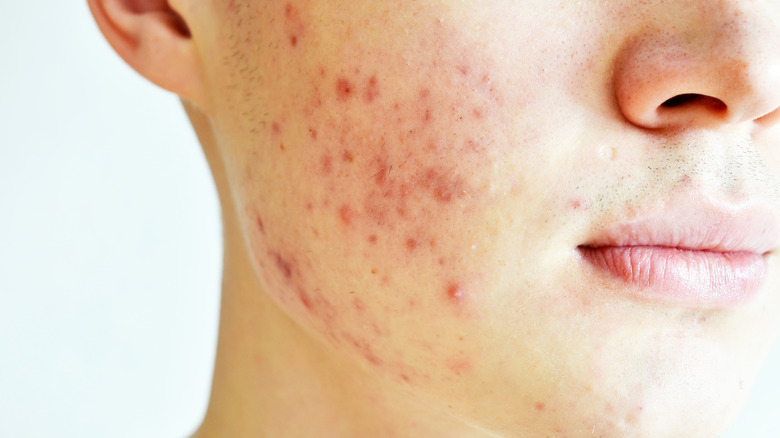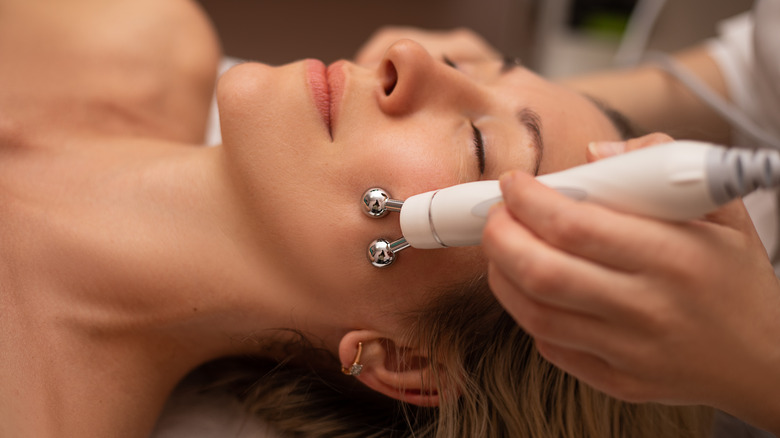The Best Way To Get Rid Of Acne Scars
Perhaps the only thing worse than dealing with a breakout is having to deal with the scars it leaves behind. The American Academy of Dermatology (AAD) reports that up to 50 million Americans are affected by acne each year. And approximately 85% of people between the ages of 12 and 24 experience at least minor acne. That's quite a large percent of the population and a lot of skin wounds. Luckily, there are ways to eliminate, or at least reduce, the scarring acne irritatingly leaves on our skin.
According to Vogue, there are different types of acne scars. They could be ice pick, rolling, or boxcar scars all depending on their size and shape. "Acne breakouts, depending on the severity, can affect not only the top layer of the skin but also the deeper levels as well," explains New York City dermatologist Shereene Idriss, M.D., to the publication. "As the inflammation subsides and the skin tries to heal, scar tissue can ensue. Severely inflammatory acne, external factors such as picking, and delayed onset of treatment can all lead to scarring," she says.
When treating the after effects of acne, it is not only helpful to find out what type of scars you have, but also to see if what you have are in fact acne scars and not just acne marks.
Luckily, there are multiple methods of treatment
Andrew Alexis, a professor of dermatology at the Icahn School of Medicine at Mount Sinai explains the differences to Vogue. "Most notably, acne scars are permanent if not treated and are characterized by having an indentation or depression in the skin." However, acne marks are usually less noticeable and clear up more easily. "Acne marks, on the other hand, do resolve eventually and are characterized by flat or smooth dark spots (hyperpigmentation) or persistent red spots (erythema) at the sites of a recent acne lesion," he says.
Once you find out what type of scars or marks you have, you and your dermatologist can decide on an effective treatment plan. According to Healthline, at-home topical ointments containing alpha hydroxy acids, lactic acid, retinoids, salicylic acid are all helpful in reducing the appearance of acne scars. If home treatments aren't giving you your desired results, you can also make an appointment with a skin care professional for treatment. Dermabrasion, chemical peels, laser resurfacing, micro needling, and fillers have all proven to be effective methods to treat skin scarring.
Acne is an understandably frustrating skin condition that plagues many of us. It may feel like you can't control your breakouts when they are happening, but you can have some say in the amount of scarring that happens afterwards. Healthline recommends not picking, popping, or squeezing any pimple that pops up on the skin. It may be tempting, but remember that attacking your acne can lead to more visible scars by causing extra damage to the underlying tissue.


